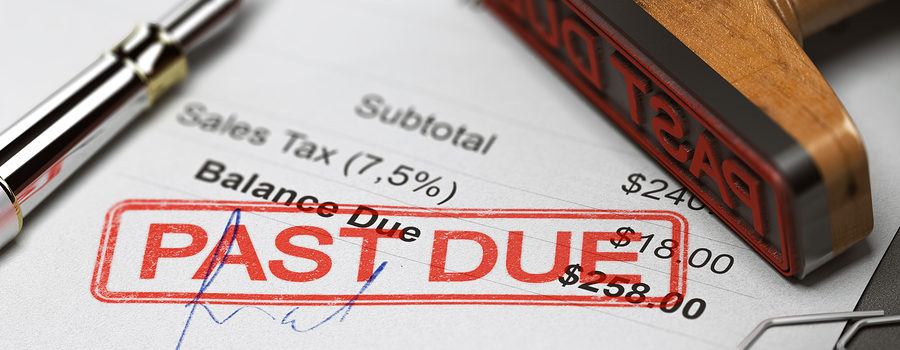Solving Small Business Collections Problems
The old cliché is that small business owners wear many “hats” – not just CEO, but also accountant, tech support and even front-line worker. But there’s one hat that is rarely talked about even though most entrepreneurs have to wear it at some point: debt collector.
You expect your customers to pay their invoices in a timely manner. But what happens when they don’t?
Why You Need to Keep Up With Invoices
An invoice, in some ways, feels like cash. After all, you provided goods or a service, and there are very real business and legal consequences for companies that don’t hold up their end of a written agreement.
But an invoice isn’t cash. Far from it. And because of that, unpaid invoices have very real consequences for the businesses that don’t collect on them.
You can’t pay off your own debts by showing the bank to-be-paid invoices – you need cash. And while you can pay for expansion initiatives with credit, thanks to interest, cash is a far less expensive. Speaking of credit, if you happen to apply for it when you’re low on cash and high on IOUs, you’re likely to get a less favorable answer than if you had all those greenbacks on hand.
We’re not just talking about a few bucks, either. The average American small business has $84,000 in unpaid invoices.
Small Business Collections Tips
The important thing to remember at the onset of an unpaid invoice is that there’s no one-size-fits-all solution. Sometimes you may just be dealing with a forgetful accountant or a company on hard times, rather than anything malicious. But the likelihood that you won’t get paid increases as time elapses, so your collection efforts should reflect that, starting lightly early on but becoming more urgent and forceful as time goes on.
For instance …
Anywhere between one and seven days overdue, send a simple form email to the client informing them that their invoice is overdue and to pay by a certain date (say, within seven days from the notice).
Consider sending a second warning with a similar (though more strongly worded theme) and collection date. If that lapses, too, you can move on to an official collection letter written by a lawyer. Depending on the size of the amount due, you may even consider hiring a collection agency to try to recoup at least some of the amount.
However, you also need to consider the client you’re dealing with. If this is a longtime client you trust, and one that has paid consistently for years, you may want to try working with them directly instead of through timed correspondence. It’s possible they’re going through a difficult stretch, and if that’s the case, consider working with them to establish a manageable payment plan.
Avoiding Collections Problems in the First Place
You obviously can’t prevent your clients from going through financial problems. But you can improve your odds of getting paid by setting certain parameters when deciding whether to make agreements with new clients.
One stricter practice is to limit giving out credit whenever possible. You actually can require clients to pay upfront, in cash – though that could reduce your client pool. A middle ground between total payment upfront and payment upon invoice is a deposit system. With this setup, some money is paid upfront, and other payments are made at agreed-upon intervals – that way you’re not completely in the lurch if a client is delinquent.
You also don’t have to offer credit to every prospective client that comes around – you can thin out the herd, just as any business (bank, auto lender or apartment leaser) would. Require would-be clients to fill out credit applications, providing information on their ability to pay. It’s not an unreasonable request, and it can save you numerous hassles down the road.
McManamon & Co. is a full-service accounting firm for small and mid-size businesses, so we know a thing or two about evaluating a company’s finances. We offer a wide assortment of other business consulting services in which we can help you determine the best ways to deal with unpaid invoices – after and before they happen.
Don’t let a delinquent client or two turn into serious cash-flow woes. Call us at 440.892.9088 or contact us online today.
Tags: McManamon, small business, small business collections problems | Posted in accounting, McManamon & Co., small business
